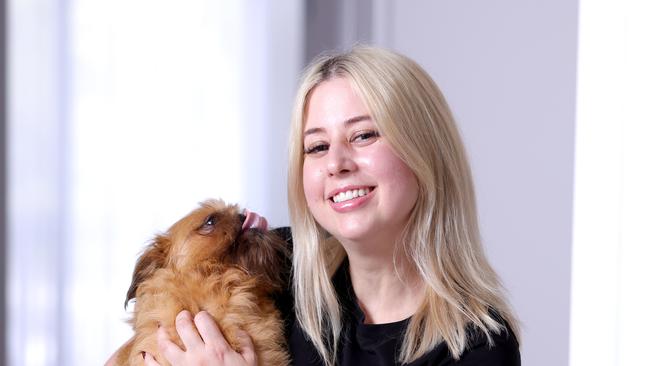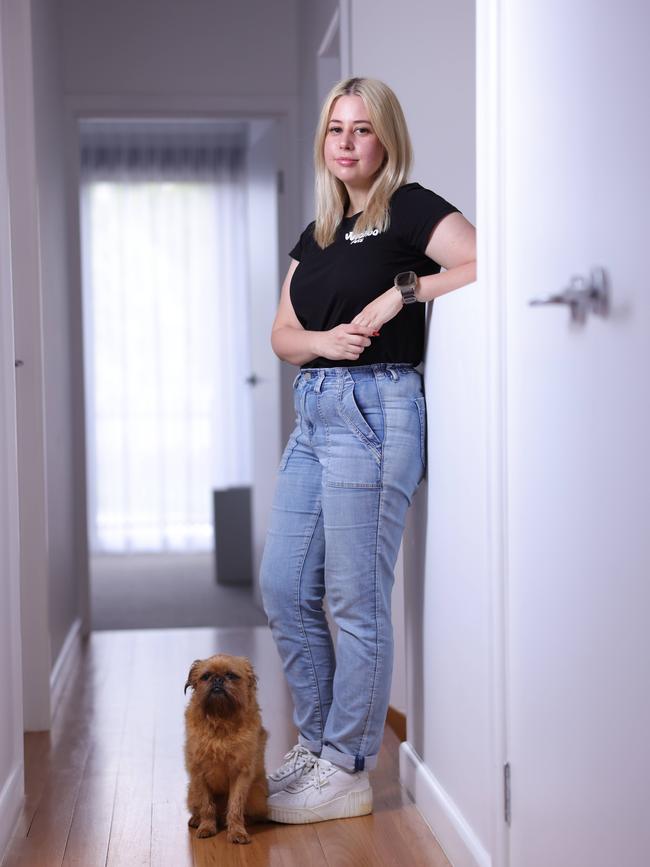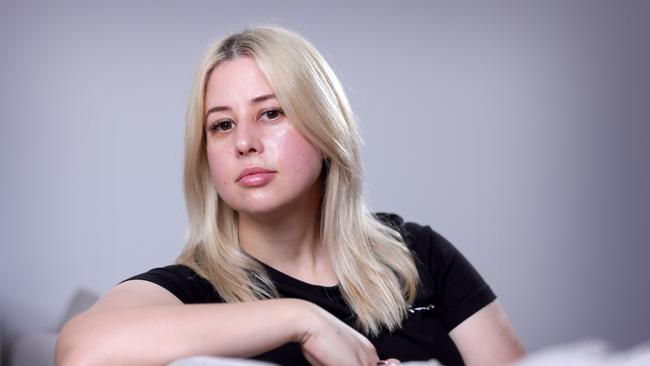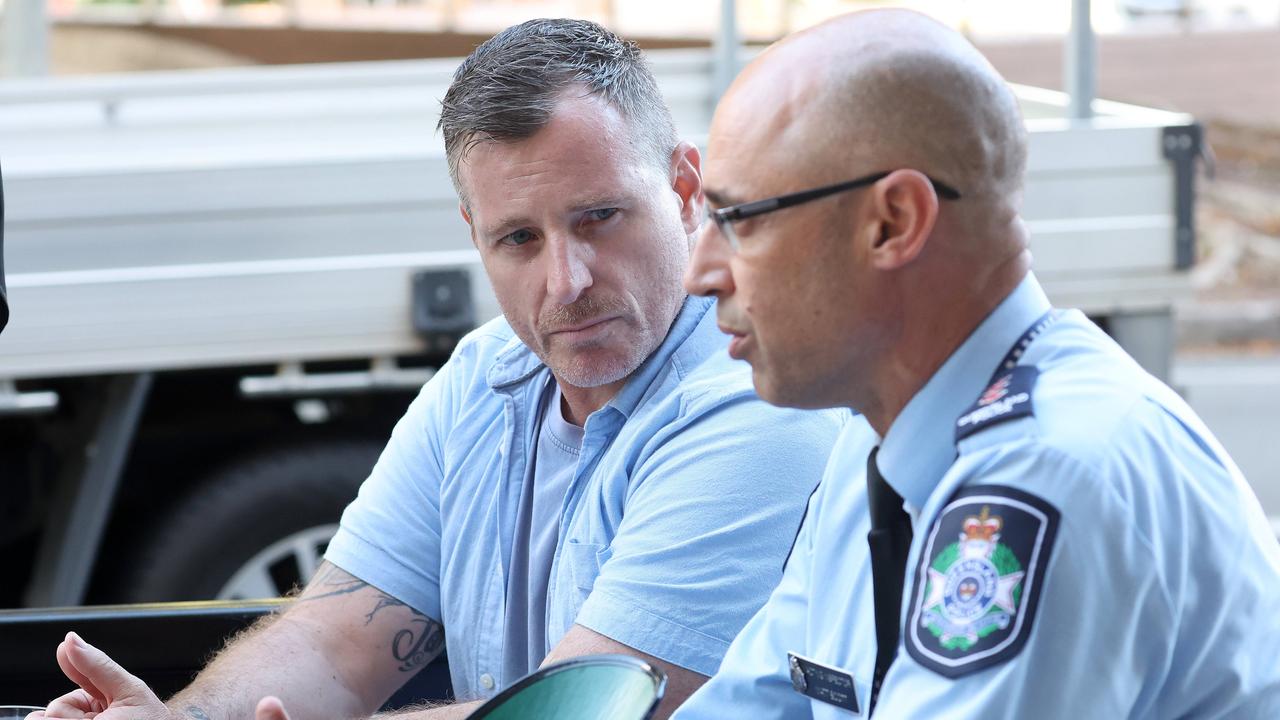Calls to have lifesaving genetic testing for young people to help diagnose cancer
Renee Gosney was just 25 when she went to the doctor seeking answers for why she had lost so much weight but was dismissed.

QLD News
Don't miss out on the headlines from QLD News. Followed categories will be added to My News.
A woman whose cancer was overlooked despite losing 11kg in a month says sick young people like her are falling through the cracks every day because they are not eligible for lifesaving genetic tests.
Renee Gosney was just 25 when she went to the doctor seeking answers for why she had lost so much weight.
Dismissed several times, Ms Gosney was finally diagnosed with stage three bowel cancer.
After surgery to remove a third of her bowel, multiple lymph nodes and several rounds of chemotherapy, Ms Gosney was finally offered a genetic test which revealed her maternal family had a history of juvenile polyposis syndrome (JPS).
JPS is a hereditary condition identified by the presence of multiple polyps or growths in the gastrointestinal tract.

Ms Gosney encouraged her half-brother to undergo testing, which revealed he too had the gene for JPS, and a subsequent colonoscopy showed he was “riddled” with polyps on his colon, something that would never have been found without genetic testing.
“The irony of this is that me going through this testing and going through my cancer experience, helped my brother,” she said.
“The doctors said if he had left it for another six months those polyps would have no doubt become cancerous.
“It was the worst case they had seen for someone his age, because at the time he was 21.
“He has gone through surgery twice now to remove those polyps.”
While children under 18 with cancer are eligible to receive genomic testing under programs like Zero Childhood Cancer, young adults are often not offered testing.
Charity group Canteen is fighting for genetic testing to be prioritised for cancer patients aged 19 to 25, to give then access to earlier, personalised treatment.
“Unfortunately for adolescents and young adults diagnosed with cancer, are often diagnosed with rare or hard-to-treat cancers and at the moment they’re falling through the gaps because they don’t have access to genomics or personalised medicine,” Canteen executive director of services and impact Siona Hardy said.
“For those who are 19 through to 25 years old, they are missing out on this opportunity to have some really wonderful personalised medicine early in their cancer journey.”
Ms Gosney said she wished genetic testing was offered to her prior to treatment or even during her initial diagnosis.
She said if she had been offered genetic testing prior it might have helped with finding the cancer earlier and even lessened the risk of fertility loss.

“There was some conversation about me being put in touch with a genetic specialist but it was not prioritised before chemotherapy,” she said.
“Because that conversation, while it was great for my brother and my family, has no use to me now. I have had my treatment.”
Five years after her diagnosis, Ms Gosney is in remission but is pushing for more in-depth information and prioritisation of genetic testing for young adults.
The issues was highlighted at the 6th Global Adolescent and Young Adult Cancer Congress held in Melbourne earlier this month where Australian of the Year Professor Richard Solyer also called for reform.
Prof Scolyer was diagnosed with a rare brain cancer (glioblastoma IDH wild-type) and, after genetic profiling of his tumour, became the first person in the world to receive pre-surgery immunotherapy and a personalised anti-cancer vaccine.
“Matching cancer treatments to a person’s genetic profile of their cancer is crucial to identify the best medical care for young people with cancer, especially those with rarer, more aggressive and harder to treat cancers,” he said.
By investing in genetically-guided research and clinical trials, we can accelerate the development of new therapies and improve outcomes for this vulnerable population.”





